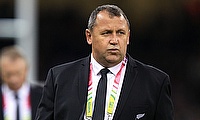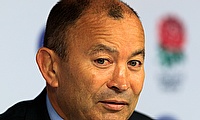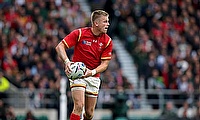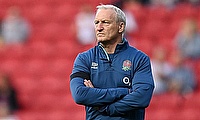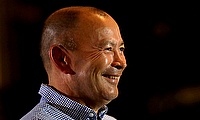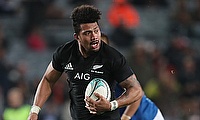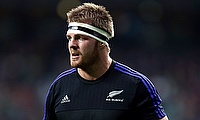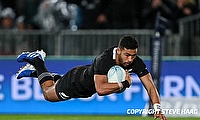Japan Rugby's tumultuous year

Head Coach Eddie Jones
©PA
After 2014 turned out to be one of the most promising years in Japan’s burgeoning rugby adventure, 2015 has been a stark reminder of the challenges facing emerging rugby nations.
After being announced as the host of the 2019 Rugby World Cup in 2009, Japan had been steadily building towards becoming the first non-Tier 1 nation to host the event in its short but illustrious history. Everything was on schedule for the tournament in the Land of the Rising Sun; the Japanese national team had strung together 10-straight wins and were sitting inside World Rugby’s Top 10, whilst the country was also awarded a franchise in the new, expanded Super Rugby competition.
With more and more southern hemisphere players also opting for stints in the Japanese Top League, everything seemed to be coinciding for Japan to make a real push to develop from an emerging nation, to a budding powerhouse of the game.
Unfortunately, 2015 has been far less kind to the nation and a number of obstacles have begun to surface which at best will hinder their progress, but at worst, could set them back years in their development.
In March, host cities and venues were announced for the 2019 tournament that spanned the entire country, including a mix of stadia from 15,000 to 80,000 in capacity, and incorporated the new national stadium, set to be built in Tokyo in advance of the Olympic Games in 2020.
Disaster then struck for the Japanese Rugby Football Union (JRFU) and Japan Rugby 2019 (JR2019), the group tasked with organising the RWC, when Prime Minister Shinzo Abe announced the current plans for the new national stadium were to be redrawn and that it would not be finished in time for the 2019 RWC. The stadium had been the centrepiece of Japan’s bid to stage the tournament and would play host to some of the biggest games in the competition, including the final.
Such a drastic change to the original plans resulted in World Rugby issuing a statement requiring JR2019 to submit a ‘new road map’ for a tournament shorn of the planned national stadium. Per Akira Shimazu, CEO of JR2019, PM Abe sent a letter to World Rugby aiming to allay any fears over Japan not being able to successfully host the event, but with the organisation lining up talks with the South Africa Rugby Union about acting as a standby for the competition, the early signs are not favourable for JR2019.
Only time, plus JR2019’s revised budget and venue proposals, both of which are required by World Rugby before the end of September, will tell whether or not the 2019 RWC will go ahead in Japan, but it’s certainly a nervy time for the competition’s organisers, as well as the sport’s growing fan base in the country.
On the pitch, Japan’s fortunes have fared much better and Eddie Jones’ charges enter the RWC with hopes of not only knocking off the USA, their biggest rivals in Pool B, but also rattling Samoa and Scotland, both of whom they have previously beaten.
Much of the credit for Japan’s rise, which saw them reach their highest-ever ranking of 9th in the world in 2014, can be laid at the feet of Jones. The Australian has brought a brand of expansive yet controlled rugby to the Cherry Blossoms and along with help from former England second row Steve Borthwick, has helped them develop their set-piece to a point where it can compete with bigger, more established rugby nations.
Cue another spanner to be thrown into the works.
News broke in August that Jones would not be renewing his contract with the JRFU when it expires at the end of the year. Not only was this a blow for the national team, but he had also been expected to take the reins of their new Super Rugby franchise. The World Cup-winning coach is currently in talks with the Stormers and is expected to fill Alister Coetzee’s shoes in Cape Town next year, creating an incredibly hard to fill void at the summit of Japanese rugby.
Issues have also been rife with the new Super Rugby franchise itself, which has struggled to attract players from clubs both abroad and in the Top League. Unlike the new franchise in Buenos Aires, which had already snaffled up a good mix of emerging and established Argentine talent by the end of July, the Tokyo-based club had only signed two players at that point.
JRFU general secretary Noriyuki Sakamoto has insisted that they have met all quotas put forth to them by SANZAR and this came just days after SANZAR reportedly sought assurances from the JRFU about the players they have thus far managed to contract. There is also concern from SANZAR that the JRFU and Japan Super Rugby Association have yet to hire a coach for the side, but Sakamoto has also moved to reassure SANZAR on that issue, claiming that Japan’s search for a new national coach had hindered their progress, but that they would have a list of possible candidates available shortly.
There will now be an uncomfortable wait for Japan as SANZAR looks over the submitted squad and judges whether or not it is of sufficient quality to compete in the competition. If the governing body views it to be short of the required ability, Japan will be hoping they are allowed further time to strengthen the group but there is also a real chance the country could be stripped of their Super Rugby franchise.
Whilst currently unnamed, some of the players that Sakamoto states are contracted to the new Tokyo franchise are likely to currently be in England, preparing for this year’s RWC, and will be hoping to give Japanese rugby fans something positive to talk about when they take on South Africa, Samoa, Scotland and the USA in Pool B.
Encouraging performances from the Cherry Blossoms at this year’s competition certainly won’t hinder the search for new national and Super Rugby coaches and looks to be just what the JRFU, JR2019 and JRSA need to help turnaround what has been a disappointing year for rugby in the Far East.


